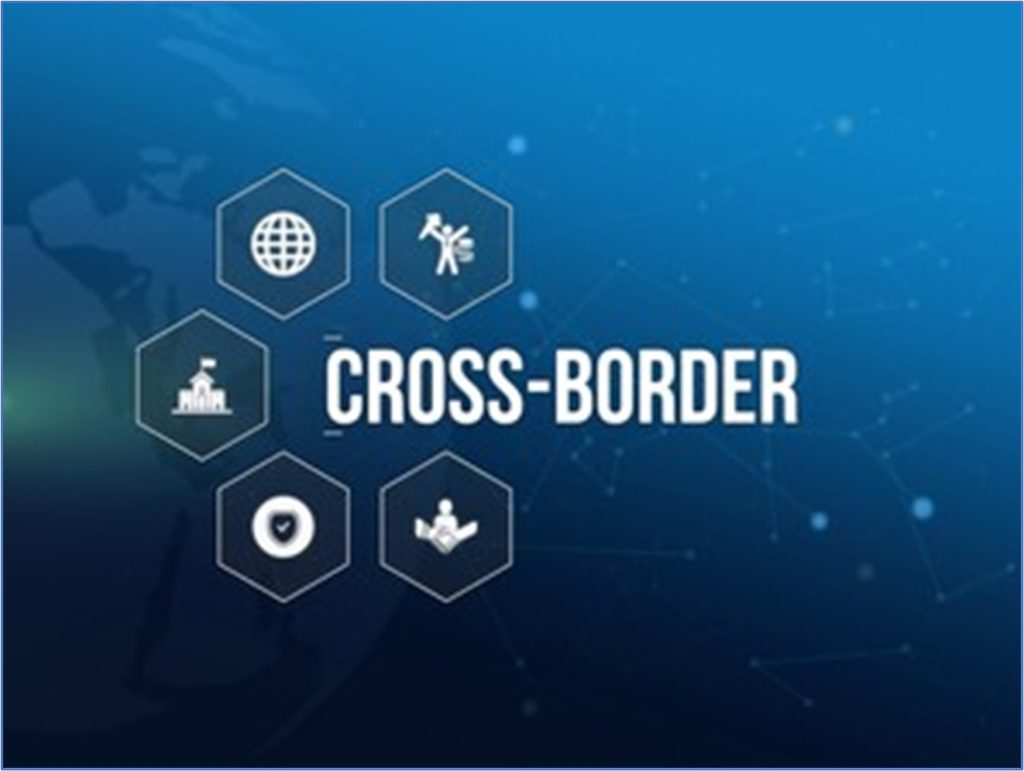
Free trade zones, or FTZs, are controlled places in a country that offer warehouse and distribution services for goods from foreign markets, excluding them from paying taxes on those goods. The value of such operations in 2021 was evident, with 1,200 active operations, 197 FTZs, and 356 production operations reporting in the US, says Site Selection Magazine (Forster). And they’re integral to maximizing global fulfillment too.
The value of shipments moving through free trade zones was over $835 billion compared to just $625 billion in 2020. This data supports the importance of trade zones in international trade. Generally, any trading party can create free trade zones around major seaports, international airports, and other areas where customs activities are higher.
With the economic benefits of free trade zones now more evident than ever, it’s essential to ask: “is your 3PL taking full advantage of the cost savings that free trade zones can provide?”
The answer, unfortunately, is only sometimes yes. Many third-party logistics providers are still charging customers exorbitant shipping fees and not leveraging the cost savings opportunities offered by FTZs. Still, what does that mean, and what’s necessary to reap the benefits of the cost-saving areas?
I. Initial Investment
The ideals behind free trade zones sound fantastic, but the number of free trade zones is far from the total number of all areas where a free trade zone may be appropriate. According to BBC News, such zones, also known as freeports, “are allowed in the European Union – with around 80 sites based in EU countries (Seddon) .”
Still, there are significant initial investments from a time and resources perspective that shippers should consider. These include:
- People and staffing requirements include skilled workers and managers that will do the daily warehouse operations.
- Strict processes and a paper trail to ensure compliance with regulations and track all transactions.
- Creating secure areas within a warehouse may be necessary to store goods, especially high-value goods and those subject to additional regulation, such as pharmaceuticals.
- Approval from governments, including the United States and the EU’s free trade zone board, legalizing the free trade zone might include submitting extensive records, proving the value of creating such zones, and conducting detailed analyses on its risks.
II. Benefits of a Free Trade Zone
- Bringing separate components and forming kits when shipping out – components are cheaper to import than kits / finished goods.
- Moves Value Added Services closer to the customer in many cases – Don’t have higher value material being imported and sitting waiting for orders.
- Reduce or eliminate certain duties and Value Added Taxes (VAT).
III. Challenges and Limitations
Pushing a free trade zone is only half of the battle. Managing a free trade zone can impact warehouse and distribution operations. Various compliance requirements, security protocols, and inventory systems need to remain compliant. Maintaining control over warehouse access and personnel procedures is also essential.
The ever-changing global trade policies and tariffs also mandate continuous monitoring and tracking via analytics and regular reporting. There is a constant need to monitor the external environment for developments and policy changes. Further, proper planning and implementation also imply a greater need to understand whether they add value to operations.
IV. Choosing the Right 3PL
Choosing the right 3PL to create and manage a free trade zone is of utmost importance. Your 3PL will have long-lasting implications for the success of a warehouse and distribution business. A 3PL provider with the experience and resources to handle foreign freight forwarding, customs clearance, and other services specific to a free trade zone is essential.
Their experience helps warehouse and distribution operations meet their goals. Thus, companies must conduct proper research to identify a 3PL familiar with local regulations, government programs, and global compliance requirements for such zones. They should also follow a few specific steps for choosing the right 3PL and maximizing the relationship:
- Assessing the particular needs and conditions of your business
- Researching and evaluating potential 3PL providers.
- Verifying the 3PL’s experience and expertise in FTZ setup and operations.
- Inquiring about their compliance and security measures.
- Asking for references and case studies from previous clients.
- Negotiating and evaluating the cost-benefit of the services offered by the 3PL.
Choose ModusLink for Help in Setting up and Leveraging a Free Trade Zone for Your Warehouse and Distribution Needs
A free trade zone is a must-have for today’s companies to reduce confusion over customs duty processes within the global supply chain. Further, customs territory differences and requirements may vary by region. It’s essential to use the latest technology and transportation management service providers, such as ModusLink, to maximize their value. Request more information to get started today.
Bibliography
Forster, James. Free Zones: Global and US Leaders Think Outside the Box. November 2022. 16 January 2023. <https://siteselection.com/issues/2022/nov/free-zones-global-and-us-leaders-think-outside-the-box.cfm#:~:text=%E2%80%9CThere%20were%20197%20FTZs%20active,%24625%20billion%20the%20previous%20year.>.
Seddon, Paul. Freeports: What are they and will they help the economy? 13 January 2023. 16 January 2023. <https://www.bbc.com/news/uk-politics-55819489>.
Disclaimer:
Content is the opinion of ModusLink Corporation and is not intended to act as compliance or legal advice.